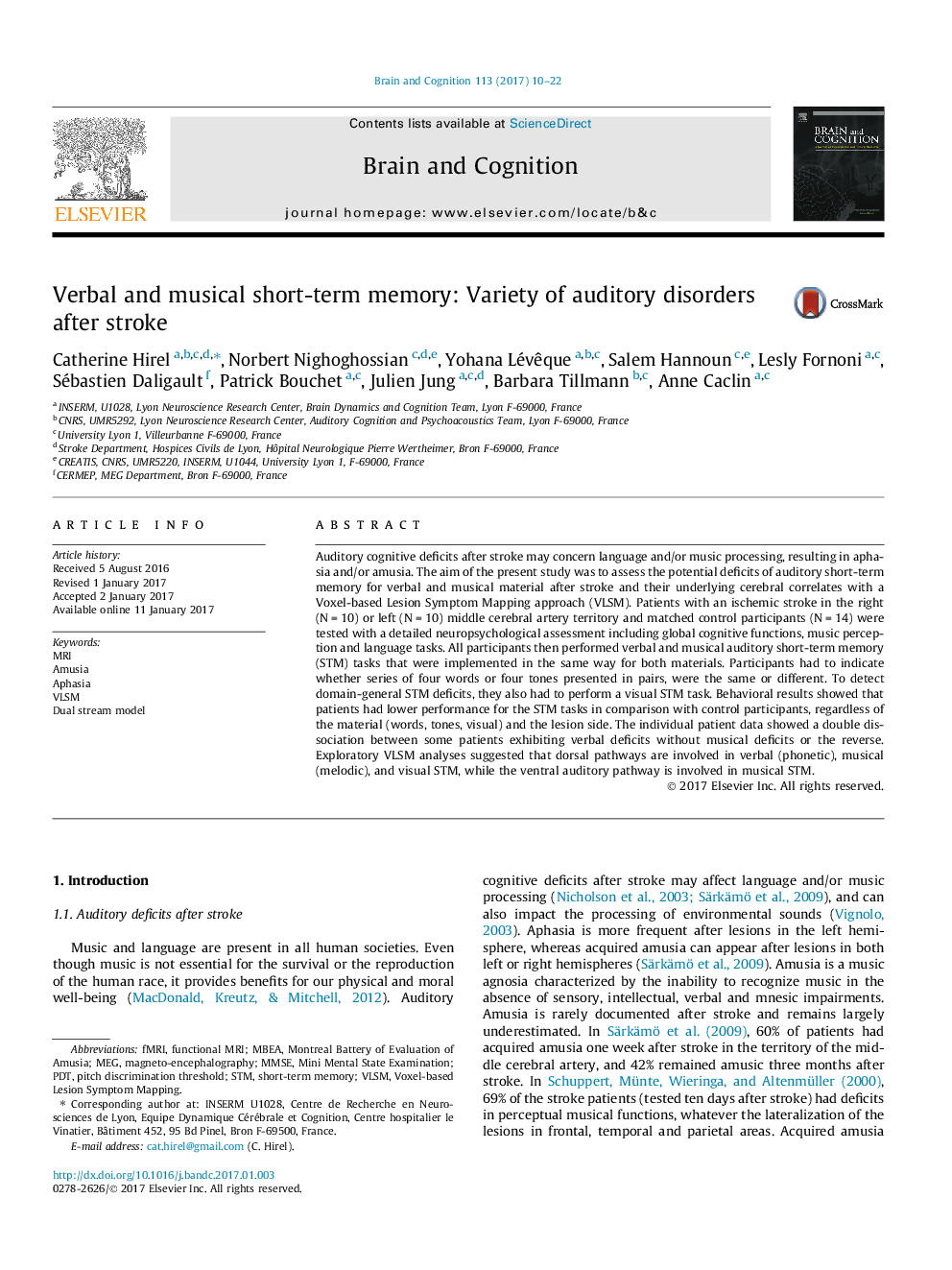| Article ID | Journal | Published Year | Pages | File Type |
|---|---|---|---|---|
| 5041139 | Brain and Cognition | 2017 | 13 Pages |
â¢Stroke patients have auditory verbal and musical short-term memory deficits.â¢Inferior fronto-parietal operculum is involved in auditory short-term memory.â¢Cerebral networks for verbal and musical memory are to some extent distinct.
Auditory cognitive deficits after stroke may concern language and/or music processing, resulting in aphasia and/or amusia. The aim of the present study was to assess the potential deficits of auditory short-term memory for verbal and musical material after stroke and their underlying cerebral correlates with a Voxel-based Lesion Symptom Mapping approach (VLSM). Patients with an ischemic stroke in the right (NÂ =Â 10) or left (NÂ =Â 10) middle cerebral artery territory and matched control participants (NÂ =Â 14) were tested with a detailed neuropsychological assessment including global cognitive functions, music perception and language tasks. All participants then performed verbal and musical auditory short-term memory (STM) tasks that were implemented in the same way for both materials. Participants had to indicate whether series of four words or four tones presented in pairs, were the same or different. To detect domain-general STM deficits, they also had to perform a visual STM task. Behavioral results showed that patients had lower performance for the STM tasks in comparison with control participants, regardless of the material (words, tones, visual) and the lesion side. The individual patient data showed a double dissociation between some patients exhibiting verbal deficits without musical deficits or the reverse. Exploratory VLSM analyses suggested that dorsal pathways are involved in verbal (phonetic), musical (melodic), and visual STM, while the ventral auditory pathway is involved in musical STM.
